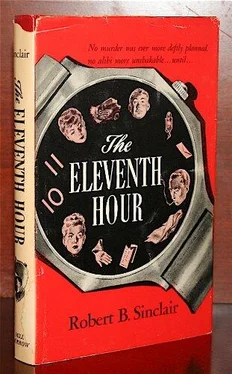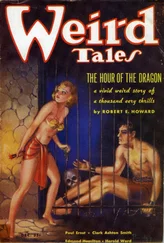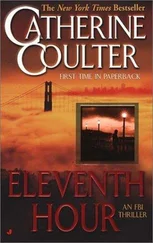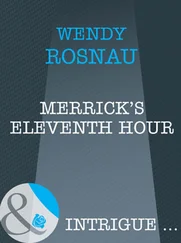Robert Sinclair - The Eleventh Hour
Здесь есть возможность читать онлайн «Robert Sinclair - The Eleventh Hour» весь текст электронной книги совершенно бесплатно (целиком полную версию без сокращений). В некоторых случаях можно слушать аудио, скачать через торрент в формате fb2 и присутствует краткое содержание. Город: New York, Год выпуска: 1951, Издательство: M.S. Mill Co. and W. Morrow, Жанр: Детектив, на английском языке. Описание произведения, (предисловие) а так же отзывы посетителей доступны на портале библиотеки ЛибКат.
- Название:The Eleventh Hour
- Автор:
- Издательство:M.S. Mill Co. and W. Morrow
- Жанр:
- Год:1951
- Город:New York
- ISBN:нет данных
- Рейтинг книги:3 / 5. Голосов: 1
-
Избранное:Добавить в избранное
- Отзывы:
-
Ваша оценка:
- 60
- 1
- 2
- 3
- 4
- 5
The Eleventh Hour: краткое содержание, описание и аннотация
Предлагаем к чтению аннотацию, описание, краткое содержание или предисловие (зависит от того, что написал сам автор книги «The Eleventh Hour»). Если вы не нашли необходимую информацию о книге — напишите в комментариях, мы постараемся отыскать её.
An abridged version of this novel has appeared in
Oct 1950 under the title “Design for Death”
The Eleventh Hour — читать онлайн бесплатно полную книгу (весь текст) целиком
Ниже представлен текст книги, разбитый по страницам. Система сохранения места последней прочитанной страницы, позволяет с удобством читать онлайн бесплатно книгу «The Eleventh Hour», без необходимости каждый раз заново искать на чём Вы остановились. Поставьте закладку, и сможете в любой момент перейти на страницу, на которой закончили чтение.
Интервал:
Закладка:
“I haven’t worn, or owned, a hat since I came to California — like thousands of other men,” Conway said.
“Well, you coulda bought that, too,” Bauer said. “But I’m surprised a man like you would go in for kid stuff like that disguise. I s’pose you were pretty rattled, though. Must of been, to think we’d pay any attention to that.”
Conway resolutely refused to let himself become panicked. But he could feel that all-too-familiar constriction of the throat begin to come on, and he wondered how much longer he could continue this show of nonchalance.
“Anyhow, you walked up to Santa Monica Boulevard, which took you about twenty minutes,” the detective continued, and then added to Davis, “I checked that. You were shot with luck, because a trolley car came along there at nine twenty-two, which was just about when you hit Santa Monica, and got you back to the theatre at nine-thirty — just in time to let you see the audience leaving the theatre after the picture.”
“No trick to it at all,” Conway said. “All I had to do was to be in two places at the same time.”
“The doorman let you into the lobby,” Bauer went on, “you went into the theatre, threw the glove under a seat, got the manager, and let him watch you find the glove. All very neat.”
“To say the least,” Conway said.
“Then you went to the parking lot, found your car gone, which it certainly was — it had been gone for an hour and a half — went through the motions of looking for your car and your wife — very convincingly, I got to hand it to you — called the police, got on a trolley and went to the police station. Eight? Eight.”
The facts were so wrong, and the deductions made from them so ridiculous, that Conway could almost relax. That he was suspected at all was disturbing, but they were, as yet, so far from knowing the real facts of the murder that he saw no reason to be too perturbed.
“You have a great future as a fiction writer,” he said to Bauer. “That makes a very nice story — except that at nine-o-four I was in the movie with my wife, and at nine-thirty I walked with her to the parking lot and the car was there. How do you explain that?”
“Very simply,” Davis said. “ You’re the fiction writer. You weren’t in the movie at nine-o-four, or any other time, because you didn’t go back to the theatre after you left the drugstore. The doorman remembers you when you started to go in and your wife found out you were early, and called you an idiot, and walked off, with you following her. But he didn’t see you come back.”
“We went back just before the picture started. There was a crowd going in.”
“And neither he nor anyone else saw you leave,” Davis continued. “And you said you left before the end of the picture, so there was no crowd coming out then.”
“He was—” Conway stopped himself in time. He had said they had left only a minute before the end of the picture; if he said that the doorman was at the popcorn counter when they left, his lie might be revealed, which could lead to other disclosures.
“How could the doorman be expected to remember everyone who walked past him in the course of the evening?” he said. “You’d have a fine time convincing a jury I wasn’t in the theatre just because the doorman doesn’t remember my going in or coming out.”
“You’ve got something there,” Davis agreed. “That would be quite an assignment. But” — he paused and smiled affably — “the joke’s on you. Because I don’t have to prove you weren’t in the theatre. You just go ahead and try to prove you were . We haven’t been able to, and” — the smile vanished utterly — “you won’t be able to either, because you weren’t there. But — I can prove everything eke.” He took a long drag on his cigarette and looked at Conway speculatively. “And now , do you want to play ball?”
“You’re nuts!” Conway said, but he was rigid with terror. He had selected the seats in the theatre with a view to being inconspicuous, so that their early exit would not be noticed; their leaving had attracted no attention, which he had counted as an added bit of luck. He had foreseen no need of having to prove his presence in the theatre, for he could not have imagined that a muddle-headed detective would manage to prove, to a presumably sane district attorney, that the crime had taken place an hour earlier than it actually had.
The muddle-headed detective spoke. “Mind if I say something to him?” he asked Davis.
“Go ahead.”
“Like I told you,” he said to Conway, “I take an interest in my clients. You’re not really a client now, of course, but I’m still interested in you. Naturally, you shouldn’t of killed her, but I can see extenuating circumstances.”
“You’re seeing double,” Conway said.
“I knew there was something phoney when I saw that glove you said she sent you to get. And, of course, I was right. But that’s one of the things makes me think it wasn’t premeditated, because if you’d planned it, you’d of figured out something better than that, you being a writer and all, so I’m right on that one, too. Well, if it wasn’t premeditated, it wasn’t first-degree murder. So, if you play ball with the D. A., maybe he’ll let it go at second-degree. Can’t ask for more than that.” He turned to Davis. “How about it?”
“There do seem to have been some extenuating circumstances,” Davis said. “Of course, I can’t promise anything, but I’ll talk to the boss. In fact, I’ll definitely recommend that we accept a plea of second-degree — if you’ll co-operate.”
“You’re all insane,” Conway said, and his voice shook with real outrage, the righteous indignation of the artist who has created a perfect work, only to have it misunderstood, distorted, perverted, by a crass and ignorant public. “This whole idiotic accusation stems from the fact that this chowderhead detective, advised by his cretin girl friend, thinks it’s unnatural for a woman to get upset about losing a glove — even an old, worn one. From that magnificent start, he’s gone on to a series of asinine deductions, based on falsified facts. I knew my wife had withdrawn the money from the bank — I didn’t know she had it with her in the drugstore, but that discovery would hardly put me into a homicidal rage. I knew nothing at all about Taylor until I was told about him this morning in this office — and I still don’t know if it’s true. I was in the theatre at nine o’clock, and the car was parked at ten. I don’t know that,” he hastened to add, “but that’s what you’ve said right along, and I do know it wasn’t parked at nine, because it was in the parking lot, and my wife was alive, at nine-thirty. And there aren’t any extenuating circumstances, because there aren’t any circumstances at all.”
Conway found that he was convincing himself, which, after all, was not too surprising, because everything he had said was true. “All this ‘evidence’ you think you have is phoney from start to finish,” he continued, “and if you’re silly enough to take me into court, I’ll prove it to any jury in the world — unless they’re all raving lunatics.”
“He don’t know what he’s saying,” Bauer said.
“Okay, Conway.” Davis turned to Ramsden. “Book him,” he said, and started for the door, then stopped and addressed Conway again. “If you change your mind, let me know. But make it quick, because if you’re going to stick to your story, and won’t co-operate, I’m going to let you have the works.”
Chapter thirteen
By noon of the next day Conway had had a session with the district attorney himself, been arraigned, and spent an unpleasant hour with a phalanx of reporters and photographers. He had only just been locked up in his cell when a small, round-faced man appeared at the barred door. A uniformed policeman retreated to a discreet distance.
Читать дальшеИнтервал:
Закладка:
Похожие книги на «The Eleventh Hour»
Представляем Вашему вниманию похожие книги на «The Eleventh Hour» списком для выбора. Мы отобрали схожую по названию и смыслу литературу в надежде предоставить читателям больше вариантов отыскать новые, интересные, ещё непрочитанные произведения.
Обсуждение, отзывы о книге «The Eleventh Hour» и просто собственные мнения читателей. Оставьте ваши комментарии, напишите, что Вы думаете о произведении, его смысле или главных героях. Укажите что конкретно понравилось, а что нет, и почему Вы так считаете.












